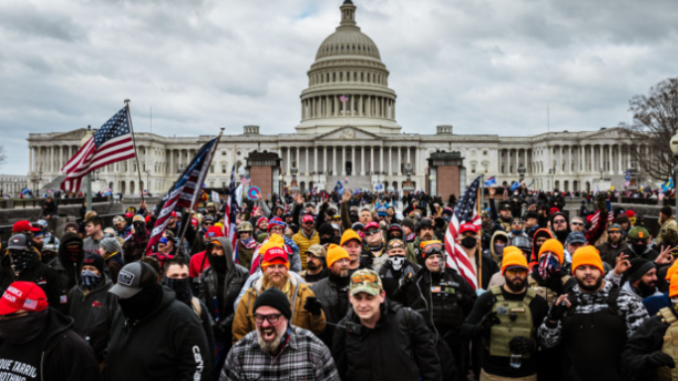
[snip]
According to The Associated Press, the pardons announced on Saturday reflect Trump’s continued use of presidential clemency to help supporters scrutinized under the Biden administration’s sweeping Jan. 6 probe, which has led to charges against more than 1,500 people.
Suzanne Ellen Kaye, who served an 18-month sentence, received a full pardon.
In 2021, after the FBI contacted her about a tip suggesting she may have been at the Capitol, Kaye posted a video invoking her Second Amendment rights and threatening to shoot agents if they came to her home.
[snip]
Kaye testified she did not intend to threaten anyone, did not own guns, and was not at the Capitol on Jan. 6.
A White House official said Kaye suffers from “stress-induced seizures,” including one during the reading of her verdict. The official described the case as “clearly a case of disfavored First Amendment political speech being prosecuted and an excessive sentence.” The official spoke on condition of anonymity.
Trump also pardoned Daniel Edwin Wilson of Louisville, Kentucky.
[snip]
Because of prior felony convictions, Wilson was barred from possessing firearms.
His case became a test of whether Trump’s broad Jan. 6 pardons applied to crimes uncovered during related investigations. A Trump-appointed judge had sharply criticized the Justice Department for arguing earlier this year that those pardons covered Wilson’s gun case.
Wilson was released on Friday evening.
“We are grateful that President Trump has recognized the injustice in my client’s case and granted him this pardon,” attorney George Pallas said. “Mr. Wilson can now reunite with his family and begin rebuilding his life.”
[snip]
Wilson had been sentenced in 2024 to five years in prison after pleading guilty to conspiring to impede or injure police and illegally possessing firearms. Prosecutors accused him of preparing for the Jan. 6 riot for weeks and seeking to stop the certification of the election. They pointed to communications with Oath Keepers and Three Percenters affiliates and messages they said reflected plans “for a broader American civil war.”
In one message from November 2020, Wilson wrote: “I’m willing to do whatever. Done made up my mind… I’m willing to sacrifice myself if necessary. Whether it means prison or death.”
[snip]
The Justice Department initially argued Trump’s Jan. 6 pardons did not apply to Wilson’s gun charges, then reversed its stance, saying it had received “further clarity on the intent of the Presidential Pardon.”
U.S. District Judge Dabney Friedrich called the shifting position “extraordinary,” noting prosecutors were arguing that pardons extended even to illegal “contraband” found during Jan. 6 searches.
* Original Article: